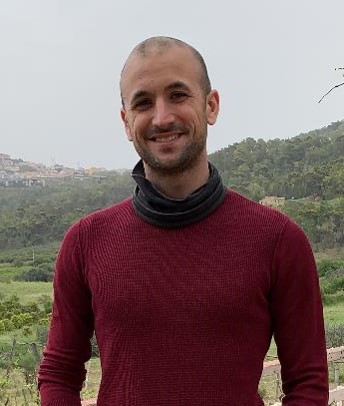Studying at the University of Verona
Here you can find information on the organisational aspects of the Programme, lecture timetables, learning activities and useful contact details for your time at the University, from enrolment to graduation.
Academic calendar
The academic calendar shows the deadlines and scheduled events that are relevant to students, teaching and technical-administrative staff of the University. Public holidays and University closures are also indicated. The academic year normally begins on 1 October each year and ends on 30 September of the following year.
Course calendar
The Academic Calendar sets out the degree programme lecture and exam timetables, as well as the relevant university closure dates..
| Period | From | To |
|---|---|---|
| 1° Semestre | Oct 1, 2023 | Jan 31, 2024 |
| 2° Semestre | Mar 1, 2024 | Jun 30, 2024 |
Exam calendar
To view all the exam sessions available, please use the Exam dashboard on ESSE3. If you forgot your login details or have problems logging in, please contact the relevant IT HelpDesk, or check the login details recovery web page.
Should you have any doubts or questions, please check the Enrollment FAQs
Academic staff
 denise.lovison@univr.it
denise.lovison@univr.it
Study Plan
The Study Plan includes all modules, teaching and learning activities that each student will need to undertake during their time at the University.
Please select your Study Plan based on your enrollment year.
1° Year
| Modules | Credits | TAF | SSD |
|---|
2° Year It will be activated in the A.Y. 2024/2025
| Modules | Credits | TAF | SSD |
|---|
3° Year It will be activated in the A.Y. 2025/2026
| Modules | Credits | TAF | SSD |
|---|
4° Year It will be activated in the A.Y. 2026/2027
| Modules | Credits | TAF | SSD |
|---|
5° Year It will be activated in the A.Y. 2027/2028
| Modules | Credits | TAF | SSD |
|---|
| Modules | Credits | TAF | SSD |
|---|
| Modules | Credits | TAF | SSD |
|---|
| Modules | Credits | TAF | SSD |
|---|
| Modules | Credits | TAF | SSD |
|---|
| Modules | Credits | TAF | SSD |
|---|
| Modules | Credits | TAF | SSD |
|---|
Legend | Type of training activity (TTA)
TAF (Type of Educational Activity) All courses and activities are classified into different types of educational activities, indicated by a letter.
General Biology (2023/2024)
Teaching code
4S00997
Academic staff
Credits
6
Language
Italian
Scientific Disciplinary Sector (SSD)
BIO/13 - EXPERIMENTAL BIOLOGY
Period
1° Semestre dal Oct 1, 2023 al Jan 31, 2024.
Courses Single
Not Authorized
Learning objectives
The course aims to bring students to: understanding of the diversity between prokaryotic and eukaryotic cells and the different levels of organization of these cellular models; understanding of cell behaviors such as the cell cycle and its checkpoints, cell proliferation and mitosis, differentiation, stemness, and cell death; describing the cell reproduction of the sexual type (meiosis) and the general principles of fertilization and development of the animal cell; understand and interpret the flow of gene information within the cell, the control of gene expression and epigenetic mechanisms. Finally, the student will acquire the ability to describe the main concepts of Mendelian genetics and to understand and recognize the modes of transmission of hereditary traits with hints of genetic disorders.
Prerequisites and basic notions
Being a first year exam, first semester, there are no specific prerequisites different from those required for access to the degree course.
Program
Introduction to the study of biology - The cell: Prokaryotes and Eukaryotes - Unicellular and multicellular organisms - Biological macromolecules (carbohydrates, lipids, proteins, nucleic acids) - Structure and function of biological membranes - Selective permeability of membranes - Transport across membranes - The internal membranes: endoplasmic reticulum, Golgi apparatus, nuclear envelope, lysosomes, peroxisomes - The nucleus: DNA, the organization of chromatin - Chromosomes as carriers of genetic information - DNA replication - Telomeres and telomerases - Repair of replication - Transcription and maturation of RNA - Regulation of transcription - Structure and functions of RNAs - Protein synthesis - Translation of RNA and genetic code - Regulation of gene expression - Sorting of proteins - Vesicular trafficking: exocytosis and endocytosis - The cytoskeleton and cell motility - The extracellular matrix - Cell junctions - The cell surface and intercellular communications - Receptors and signal transduction mechanisms - The cell cycle and its control - Mitosis - Cell differentiation - Apoptosis (programmed cell death ) - Cell staminality - Meiosis - Gametogenesis and fertilization - Elements of human genetics - Human karyotype and chromosomal abnormalities - Mendel's laws. Relationship between genes and chromosomes: independence and association; gene recombination - Construction and interpretation of pedigrees. - Methods of transmission of genetic information: autosomal (dominant and recessive) and sex-linked (dominant and recessive) inheritance - Mitochondrial inheritance - Extensions of Mendelian genetics (penetrance, expressivity, incomplete dominance and codominance, multiple alleles, epistasis) – Epigenetics (methylation, imprinting). Inactivation of the X chromosome in mammals - Polygenic and multifactorial inheritance - Genetics of ABO and Rh blood groups - DNA mutations - Somatic mutations and cancer - Fundamentals of population genetics, evolution and natural selection - Basics of gene therapy and pharmacogenomics - Biology of aging.
Bibliography
Didactic methods
The course is organized in theoretical lessons and commentary on short videos in the classroom. Supplementary educational material (scientific articles and videos) will be made available on the moodle e-learning platform.
Learning assessment procedures
The exam is divided into a written test and an oral test aimed at ascertaining the knowledge of the course contents. The written exam is preparatory to the oral exam and consists in administering a test with multiple choice, true or false questions, completions, correspondences and open answers relating to the topics included in the course programme.
Evaluation criteria
Knowledge and understanding: the student will have to demonstrate knowledge of the structure and main functions of the animal cell; knowledge of the structural and functional properties of the main molecules of biological interest and the principles on which the functions operating in biological systems are based. Applied knowledge and understanding: the student must demonstrate knowledge and concepts useful for establishing correlations between structure and biological functions and connections between the various topics covered. Making judgements: the student must demonstrate the ability to critically examine and argue the information acquired. Communication skills: the student must demonstrate the ability to communicate the acquired skills with appropriate terminology. Ability to learn: the student will have to demonstrate that he possesses the ability to learn useful in order to autonomously increase his knowledge of new emerging aspects in biology. The tests (written and oral) ascertain the level of knowledge of the theoretical contents, the property of language in describing biological structures and processes, logical/deductive and synthesis skills, argumentation skills. The final grade is given by the evaluation of each individual test, considered positive for a score equal to or greater than 18/30.
Exam language
Italiana
Type D and Type F activities
Modules not yet included
Career prospects
Module/Programme news
News for students
There you will find information, resources and services useful during your time at the University (Student’s exam record, your study plan on ESSE3, Distance Learning courses, university email account, office forms, administrative procedures, etc.). You can log into MyUnivr with your GIA login details: only in this way will you be able to receive notification of all the notices from your teachers and your secretariat via email and soon also via the Univr app.

 045-8027284
045-8027284








